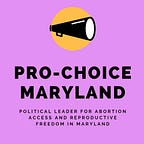Health Education Needs to Be Fixed
by Riya Seth
Reproductive justice cannot be achieved without comprehensive health education programs. The reproductive justice movement advocates for rights to create a spectrum of reproductive decisions free of coercion and financial or social barriers. Education, particularly health and sex education, is essential in order for people to make informed decisions about their reproductive choices.
Currently, many K-12 students lack access to comprehensive health and sex education, which is necessary to make informed health and reproductive choices. LGBTQ+ students have even less access to relevant information. These educational gaps are leading to worse health outcomes, like higher rates of sexual transmitted infection (STI) and unintended pregnancy.
Specifically, sex education needs to be improved. SEICUS, an organization that advocates for comprehensive sex education as a vehicle for social change and reproductive freedom, has found that less than half of Maryland middle schools and less than three fourths of Maryland high schools have taught students how to correctly use a condom. The Center for Disease Control (CDC) has also identified 20 sexual health education topics needed to properly inform young people on sexual health. Some key topics include connecting students to sexual health and other health services at school or in the community; engaging parents, families, and community partners in school programs; and fostering positive relationships between adolescents and important adults. Through data collected for the 2017–2018 school year, the CDC has found that less than a third of Maryland middle schools and less than half of Maryland high schools teach all 20 topics.
This is a serious issue. Young people need a more thorough sex education. Research suggests that comprehensive sex education and STI prevention programs can decrease sexual risk behaviors, prevent unintended pregnancy, and even improve academic performance of young people. To be clear, schools are required to teach information on consent and boundaries, age-appropriate lessons about sexual abuse and prevention, and the effectiveness of abstinence, contraception, and condoms. However, there are no statewide laws to ensure that comprehensive and evidence-based sex education is actually being taught in the classroom, and that students have opportunities to receive information about access to contraception in their communities. [DP1]
There have also been growing concerns about whether all schools are offering health education inclusive of all gender identities and sexual orientations. Less than a third of all Maryland secondary schools provide students with information on HIV, STI, or pregnancy prevention information relevant to LGBTQ youth. Amongst the larger picture of systemic homophobia in our society, this is especially harmful. LGBTQ youth are in every community; they are present in every socioeconomic, racial, and ethnic group. We can’t leave out LGBTQ people in the discussion on health and sex education.
We owe all young people access to accurate, comprehensive information about their health, no matter their sexual or gender identity. Research has found that social stigma about their gender and sexual identities significantly affects their health. Young gay and bisexual males have disproportionately high rates of HIV, syphilis, and other STIs,and adolescent lesbian and bisexual females are more likely to have ever been pregnant than their heterosexual peers. To combat these issues, students need access to abundant resources and contraception that will fit their needs.
In addition, Maryland students can currently be taught health education by third-party instructors. This can lead to harmful situations of crisis pregnancy centers (organizations created to persuade, shame, and scare pregnant people against having abortions) sending representatives to teach sex education. These representatives might use false fear-mongering information about the dangers of contraception and abortion. Third party instructors could also be dieticians fat-shaming students in class instead of engaging in constructive discussion about health (possibly leading to disordered behaviors in students).
Third party instructors could be police officers teaching health class and disrupting educational environments, especially for Black youth, who carry the weight of generational trauma from police violence. While not all third-party instructors are as harmful as the examples mentioned, we must prevent harmful health lessons by regulating the training and types of people allowed to teach health education.
As a current high school student in Howard County, Maryland, I care deeply about health education and want to raise awareness about educational gaps. Personally, I was not taught some relevant reproductive information, like about condom usage, or about gender and sexuality. My experiences have directly led to advocacy for a more comprehensive health and sex education curriculum.
While I believe that we need to improve health education, do you agree? Do you have experiences of being taught health education in Maryland public schools that you are willing to share? Fill out this short, five-minute survey by Friday, August 20, 2021. You’ll even be entered into a raffle for a $25 amazon gift card! We will release the results live on Facebook NARAL Pro-Choice MD on Wednesday, August 18, 2021.
